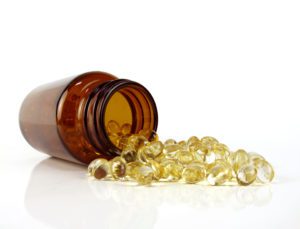WorkSaver Newsletter – July 2016 Wellness Tip
The Benefits of Sunshine and Vitamin D – Should We Really Avoid Sun Exposure?
Sunlight exposure is essential to our health because it is the best source of vitamin D, an important nutrient which is synthesized in our bodies when skin is exposed to sunlight. However, the concerns about the danger of exposure to UV rays has caused many to use sun screens to block the sun’s rays. Paradoxically, there is scientific evidence that increased vitamin D levels lower the risk of cancer, diabetes, heart disease and every other chronic illnesses.
A four-year study conducted by researchers at Creighton University found that vitamin D and calcium supplementation can help prevent 17 types of cancer and lower your overall cancer risk by a whopping 77%. Another extensive study conducted on more than 27,000 patients at the Intermountain Medical Center in Salt Lake City found those with the lowest vitamin D levels were 43% more likely to develop coronary artery disease than those with normal levels.
Vitamin D is also known to help lower the risk of type 1 and type 2 diabetes, and helps prevent autoimmune disorders like multiple sclerosis and rheumatoid arthritis. Vitamin D also acts as an anti-inflammatory. A recent study shows that vitamin D binds directly to your DNA and triggers a gene that stops inflammation. This can be lifesaving when one considers that of the 10 leading causes of death in the U.S., chronic inflammation contributes to at least seven of them. These include heart disease, cancer, chronic lower respiratory disease, stroke, Alzheimer’s disease, diabetes, and nephritis.
So does it make sense to avoid sunshine?
A recent study by the University of California, San Diego School of Medicine and Creighton University School of Medicine in Omaha, Nebraska, reveals that the typical adult needs between 4,000 and 8,000 international units (IUs) of vitamin D3 per day to help prevent cancer, multiple sclerosis, and type 1 diabetes.
In summary, increasing vitamin D, and particularly avoiding vitamin D deficiency, may be one way to significantly improve your health and perhaps longevity of life. So if you think you need or want to increase your vitamin D level, here are some recommendations:<
- Bask in the sunlight for 10 to 15 minutes daily or at least a few times per week (and expose as much skin as you can without getting arrested!). This is the best way for your body to obtain vitamin D. As little as 10 minutes in the midday sun can provide you with as much as 10,000 IUs.
- Try some cod liver oil. Next to sunlight, this is the best source of vitamin D, providing 1,360 IUs in just a single teaspoon per day. Since cod liver oil is whole-food based and easily digested, you can take it any time of day — though many people prefer a spoonful in the morning as it helps with energy regulation throughout the day.
- Eat foods rich in vitamin D. These include small fish like herring, sardines and anchovies. Organic milk from grass-fed cows is also an excellent source, as are egg yolks, cooked salmon and mackerel, tuna fish and orange juice.
- Consider taking a good-quality vitamin D3 supplement in case your diet and exposure to sunlight do not provide you with all the vitamin D you need. (Check with your medical physician first if you have a medical condition and/or to make sure that a vitamin D supplement does not conflict with any medication that you are taking.) Realize that the synthetic form of vitamin D2 that is found in most multivitamins it is less potent and less absorbable.
If you do choose to take a vitamin D3 supplement, take it in the morning and not at night. Vitamin D works in opposition physiologically to melatonin, your sleep hormone, and may keep you awake.
References:
- Lindqvist PG, Epstein W, Nielsen K, Landin-Olsson M, Ingvar C, Olsson H. Avoidance of sun exposure as a risk factor for major causes of death. Journal of Internal Medicine. 16 Mar 2016; doi:10.1111/joim.12496.
- Lappe, J.M., et al, “Vitamin D and calcium supplementation reduces cancer risk,” Am. J. Clin. Nutr. June 2007; 85(6):1586-91
- “Vitamin D Shows Heart Benefits in Study,” NYTimes.com, 11/16/2009
- Zhang Y, et. al. “Vitamin D Inhibits Monocyte/Macrophage Proinflammatory Cytokine Production by Targeting MAPK Phosphatase-1.”Journal of Imm, March 1, 2012; vol. 188 no. 5 2127-2135.
- “Chronic Inflammation.” Life Extension Protocols. Retrieved March 5, 2012.
- Jenab M, et. al. “Association between pre-diagnostic circulating vitamin D concentration and risk of colorectal cancer in European populations” BMJ. 2010 Jan 21;340:b5500.
- Bogoch E, Elliot-Gibson V, Wang R, Josse R. “Secondary Causes of Osteoporosis in Fracture Patients.” J Orthop Trauma. 2012 Feb 25.
- Nic Suibhne T, Cox G, Healy M, O’Morain C, O’Sullivan M. “Vitamin D deficiency in Crohn’s disease: Prevalence, risk factors and supplement use in an outpatient setting.” J Crohns Colitis. 2012 Mar;6(2):182-8.
- Lee J, Gadi R, Spertus J, Tang F, O’Keefe J. “Prevalence of vitamin D deficiency in patients with acute myocardial infarction.” Am J Cardiol. 2011 Jun 1;107(11):1636-8.
- Garland CF1, French CB, Baggerly LL, Heaney RP. Vitamin D supplement doses and serum 25-hydroxyvitamin D in the range associated with cancer prevention. Anticancer Res. 2011 Feb;31(2):607-11.

